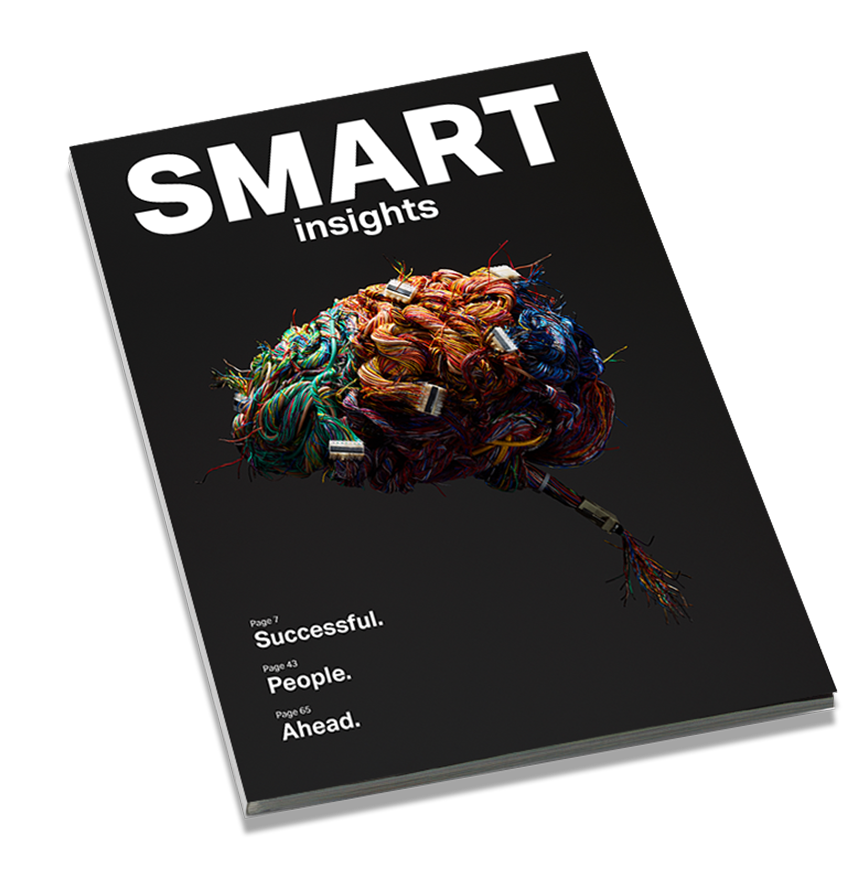This interview was published in the Ergon Magazine SMART insights 2019. Order your free copy now ->
Ergon recognised the potential of the Internet of Things (IoT) at an early stage – not least to help Switzerland’s many excellent SMEs achieve substantial competitive advantage. What has been the secret of Ergon’s success in helping companies plug in to a networked future? Benedikt Ostermaier and Gert Brettlecker take us behind the scenes.
So what exactly is the Internet of Things (IoT)?
Gert: Take an industrial firm that manufactures flap valves, say. These days, such valves are capable of communicating with other devices – a thermostat for example – while simultaneously sending up-to-the-minute information about their status to a control system that captures, processes and checks the data and issues commands. All this happens via the internet.
Benedikt: A technician can then use an app to check how a system is working, for instance – on-site or somewhere else entirely, on a PC, a tablet or a smartphone. But that is just one small example to illustrate the principle. It’s essentially all about transparency and real-time information being captured and processed centrally.
How do you proceed when a company comes to you and says they are interested in the IoT?
Benedikt: First of all, we take a close look at the job in hand. We ask a battery of questions in order to get a solid understanding of what’s required. Even at this early stage, the customer benefits from our comprehensive IoT skills. The next step is to create a concept, laying out technical considerations and anticipated costs. We then draft a roadmap and get started on the development work. Both of these tasks are carried out in close cooperation with our customer, and we work using an agile methodology. This means that we design and develop in small steps, always getting the go-ahead from the customer before progressing to the next stage.
So it’s not just a matter of placing an order and getting it on time?
Gert: We always deliver on time – we are especially careful about that. But it’s much better for our customers if we work together and move forwards incrementally. We also like to work on-site with customers at regular intervals in order to understand the full complexity of the problems they face. We’re constantly asking ourselves, "What can we do to benefit the client?" Maybe something the client’s team has never heard of, something of which they are unaware, that will further their aims and take their products to the next level.
Don’t they all say that?
Benedikt: Maybe they do – but we actually deliver. Our customer relationships are long-term arrangements and our innovations are sustainable. We want our customers to be confident that they have chosen the best partner. Naturally, we want them to enjoy working with us and to come back.
Gert: We believe the mindset of our staff is crucial. We want colleagues who enjoy their work, who are committed, and who are ready to go the extra mile – not just now and again, but as a matter of course. We are looking for people who are constantly seeking to improve in every project they take on.
How do you define a successful cooperation?
Benedikt: At Ergon, we have consciously adopted a flat hierarchy and promote – indeed, require – entrepreneurial thinking. There are no lone wolves here. We are only successful when we work together. To achieve optimal results, we must continually scrutinise our solutions, and doing that requires the skills and input of everyone involved. Successful teamwork also involves a certain basis of trust, of course, combined with respect and openness, so that staff can work through difficult issues as well.
Do you always agree, or does it actually come to those difficult discussions between you?
Gert: Of course we don’t always agree. Debate is an important part of our company culture. The complexity of the topics we deal with invariably means there is a host of possible options for solving a given problem, and we strive to pinpoint and implement the best option for the customer. To arrive at that destination, we need a selection of ideas generated on the basis of open, honest – and, yes, sometimes heated – discussion.
This interview is part of the series "Entrepreneurs in our midst" in SMART insights 2019. You can find an overview with all interviews here.
Interested in more?
Digitisation projects
Change makers
Tech trends
Order now
